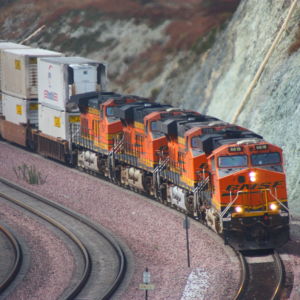A leading railroad association urged balance Wednesday during a hearing on how overregulation could stifle economic growth.
The Senate Commerce, Science, and Transportation Committee held a hearing to discuss whether overregulation is creating challenges for the industry. Rail industry leaders discussed their views at the hearing. The Association of American Railroads (AAR) argued overregulation is a problem and that a “nimble and flexible regulatory structure” is the right approach.
“As one of America’s oldest industries, the freight railroads especially understand the proper balance between government oversight and ineffective intervention,” AAR President Edward Hamberger said in comments submitted to the committee. “The world today is much different than it was even five years ago, and disruptive innovation will only accelerate greater change.”
Hamberger highlights a range of technological changes already taking place in the railway industry. Railroads are looking to automation and inspection machines to improve some safety procedures. AAR projects freight railroads will spend $22 billion this year to upgrade infrastructure and technology.
“We cannot continue to strangle innovation with regulation,” Hamberger said.
Hamberger makes several recommendations to ensure railroad regulation is done in a balanced manner. He notes regulations should have a well-defined and measurable objective that can be regularly evaluated, their benefit should outweigh their cost and regulatory agencies should be transparent in their decision making.
AAR believes the recommendations and balanced regulations will help boost private investments even further. The freight railroad industry has spent over $630 billion since the industry was partially deregulated in the 1980s. Private investment also means less stress on taxpayers.
Sen. Bill Nelson, D-Fla., the top Democrat on the committee, warned during the hearing that too few regulations could be problematic. He highlighted dangerous toys, massive recalls, and other recent incidents. He agrees balance is the right approach but notes there are still areas where policymakers need to be vigilant.
“[We] have worked in a bipartisan manner to identify and, where appropriate, remove outdated, duplicative or over-burdensome rules,” Nelson stated. “At the same time, Mr. Chairman, this committee has taken numerous bipartisan actions to protect the health and safety of all Americans.”
The railroad industry has a significant impact on other sectors across the economy. AAR states freight railroads created nearly $274 billion in economic activity, generated nearly $33 billion in state and federal tax revenues, and supported nearly 1.5 million jobs nationally in 2014 alone.

